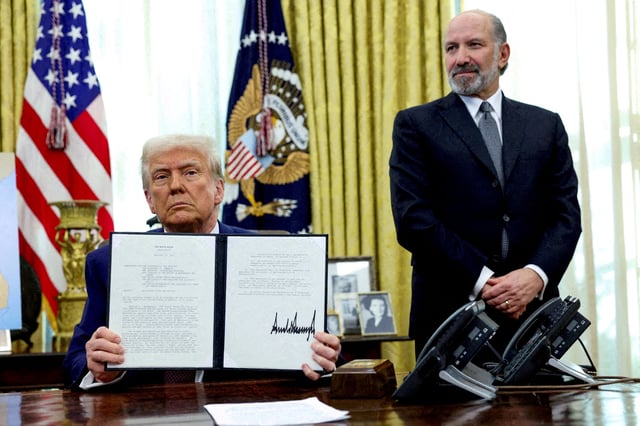Overview
- President Donald Trump is set to announce 'Liberation Day' tariffs today, introducing reciprocal duties to match foreign tariffs on U.S. exports and a 25% tax on auto imports effective April 3.
- The tariffs aim to boost U.S. manufacturing and address trade imbalances but are expected to raise consumer costs, with households facing an estimated annual increase of $3,400 to $4,200.
- Major U.S. trading partners, including Canada and the European Union, have prepared retaliatory measures, escalating global trade conflicts and straining international relations.
- Economists warn the tariffs could disrupt global supply chains, increase inflation, and potentially lead to a recession, with industries like automobiles, pharmaceuticals, and semiconductors particularly vulnerable.
- Markets remain volatile, with significant declines in consumer confidence and stock indices, as businesses and investors brace for the economic fallout of the new trade policies.



